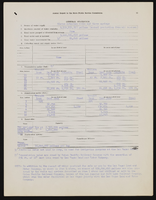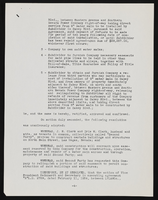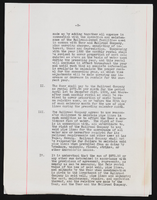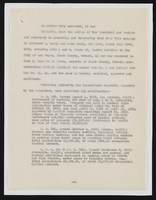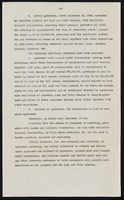Search the Special Collections and Archives Portal
Search Results
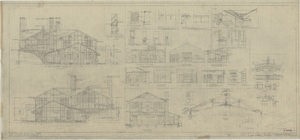
Architectural drawing of addition to pavilion at Zion National Park, Utah, elevations, sections and details, December 12, 1925
Date
1925-12-12
Description
Additions to pavilion building, Zion National Park, Utah. North and south exterior elevations, various interior elevations, numerous details, sections, plans and loading and stress diagrams for additions to the pavilion building at Zion National Park, Utah. Scales as shown. "Dr. by D.A.E., R.R.C., W.L.H. " "#15782-F. Sheet no. 6. Job no. 348. Date: 12/12/25." "Recommended by D.R. Hull per T.C. Unit, Landscape Eng. N.P.S. Approved by Stephen T. Mather, Director, N.P.S." "Rev. 1/11/26, 2/2/26, 3/2/26."
Site Name: Zion National Park (Utah)
Image
Pagination
Refine my results
Content Type
Creator or Contributor
Subject
Archival Collection
Digital Project
Resource Type
Year
Material Type
Place
Language
Records Classification


